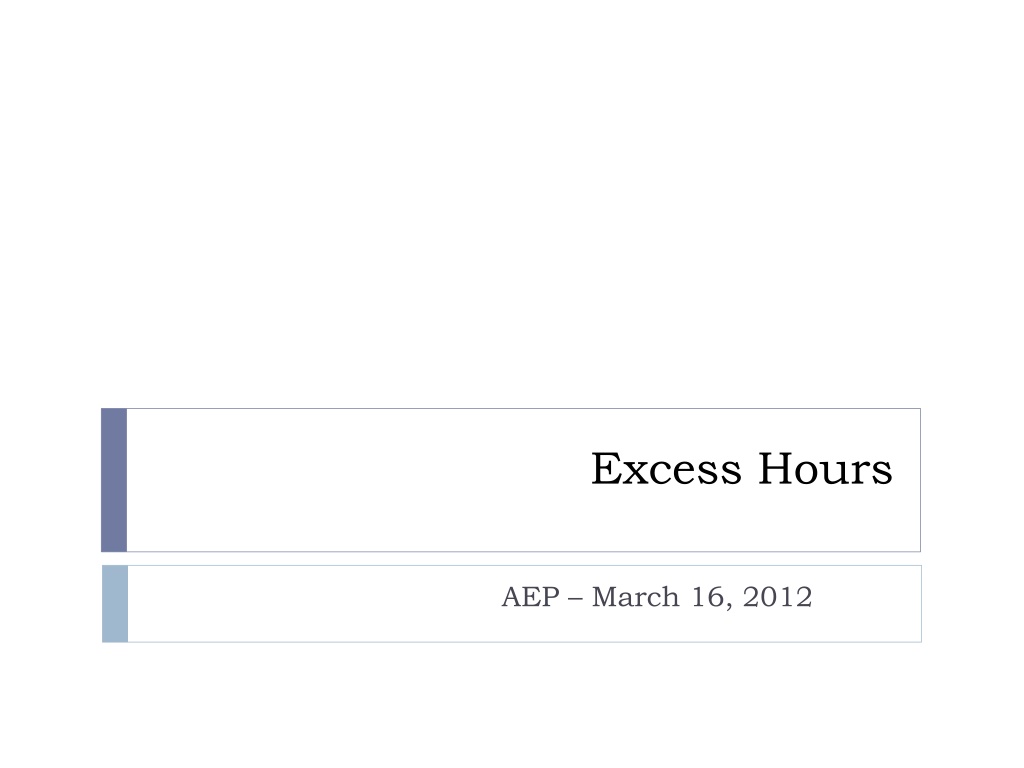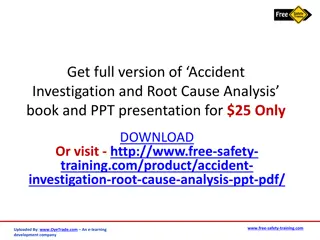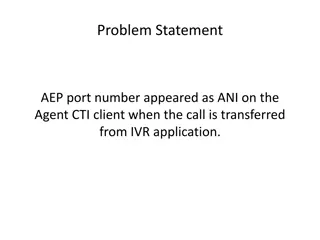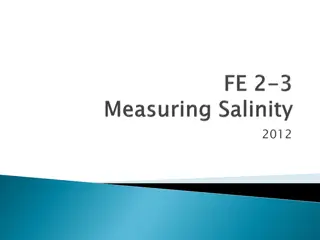Understanding Excess Hour Fees in Florida Universities
Florida universities implement excess hour fees to encourage efficient completion of undergraduate degree programs. The fees are applied when students exceed a certain number of credit hours, aiming to incentivize timely degree completion. The policy includes provisions for notifying students, counting credit hours, and exceptions for certain circumstances. Changes in the statute have adjusted the threshold for excess credit hours and the surcharge amount over time to further align with the goal of efficient degree completion.
Download Presentation

Please find below an Image/Link to download the presentation.
The content on the website is provided AS IS for your information and personal use only. It may not be sold, licensed, or shared on other websites without obtaining consent from the author. Download presentation by click this link. If you encounter any issues during the download, it is possible that the publisher has removed the file from their server.
E N D
Presentation Transcript
Excess Hours AEP March 16, 2012
1009.286, F.S. Overview of Provisions Undergraduate students shall pay an excess hour fee that is equal to 50% of the undergraduate tuition for each credit in excess of 120% of the required credit hours for that student s baccalaureate degree program. Affects students entering a university for the first time Fall 2009 or later. Requirement to notify students of the provisions of the statute. Upon initial enrollment A second notice when the student has earned the number of credit hours required to earn the degree. All credit hours for courses taken at the university shall be included. Exceptions Source: Florida Board of Governors Technical Assistance Guidelines for Implementation of Regulation 7.0003. April 2010.
Statue change in 2011 Threshold reduced to 115% of the required credits for the degree program. Surcharge increased to 100% per-credit tuition.
Why? It is the intent of the Legislature to encourage each undergraduate student who enrolls in a state university to complete the student s respective baccalaureate degree program in the most efficient way possible while providing for access to additional college coursework. Therefore, the Legislature intends to enact a policy that provides incentives for efficient baccalaureate degree completion. Source: Title XLVIII K-12 Education Code Chapter 1009.286. Flsenate.gov
What Counts? All credit hours for courses taken at the university from which the student is seeking a baccalaureate degree shall be included when calculating the number of hours taken by a student including: Failed Courses Withdrawn courses Graduate credit that is attempted for completion of a baccalaureate degree. Repeated courses except for those in which the student is paying the Third Attempt Course Repeat Surcharge. All credit hours earned at another institution and accepted for transfer toward the student s baccalaureate program. Source: Florida Board of Governors Technical Assistance Guidelines for Implementation of Regulation 7.0003. April 2010.
Exclusions Courses repeated for a third attempt. Internships Credit hours that were earned for certification, recertification, or certificate programs. Courses in which the student withdrew due to reasons of medical or personal hardship. Credit hours earned while on military active duty. Credit hours required to achieve a dual major (or dual degree) while pursuing a baccalaureate degree. Remedial and ESOL credit hours ROTC courses Source: Florida Board of Governors Technical Assistance Guidelines for Implementation of Regulation 7.0003. April 2010.
How is the 120% (or 115%) determined? Not always 144 ! The baseline limit is determined based on declared major during initial term of enrollment. One-time evaluation of transfer credit evaluated and included. Transient Source: Florida Board of Governors Technical Assistance Guidelines for Implementation of Regulation 7.0003. April 2010.
FAQs on the Baseline Determination Does the baseline change? For most students, no. What if the student changes majors? Original included credits still count. Credit hours for the new major will also count. Example: English major (120 c.h. required) who changes to Electrical Engineering (128 c.h. required.) What about undeclared majors? Everything counts.
Exemptions Active Duty or Hardship Credit hours in courses in which a student must withdraw due to reasons of medical or personal hardship WM grades Credit hours taken by active-duty personnel. Source: Florida Board of Governors Technical Assistance Guidelines for Implementation of Regulation 7.0003. April 2010.
More Exemptions ROTC Foreign Language courses taken to meet SUS foreign language admission requirements. Internship courses. Source: Florida Board of Governors Technical Assistance Guidelines for Implementation of Regulation 7.0003. April 2010.
Technical Tools For the Student Counter Ability to view what courses are and are not included. Ability to view transfer work that is applied towards excess hours. A record of the first major used for the baseline calculation. Total Credits Permitted before hitting excess hours.
Technical Tools For the Administrator A similar table that the student would see. Ability to edit that table. For appeals or needed manual intervention. CRM Ability to query the excess hours tables and send reports to advisors.
Technical Tools Under Consideration Use of a service indicator noting the students approaching their excess hours limit. Possibly passing a flag to DARS
Communication to Students Initial Communication to new students Orientation CRM Catalog Ongoing Communication Counter Website http://www.registrar.sdes.ucf.edu/excess_hours/surcharge/ Warning Communication 100 hours
Questions and Information Websites: Flsenate.gov Leg.state.fl.gov Title XLVIII Chapter 1009.286 Registrar.ucf.edu Email: Registrar@ucf.edu Campus Resources Brian Boyd Dore Carter Heath Martin Steven Sesit Paul Viau Elliot Vittes























